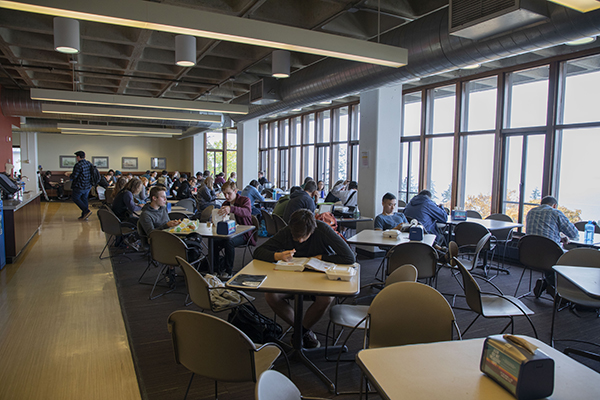Over half of Washington college students report experiencing basic needs insecurity, up 6 percent since 2022

February 4, 2025
Olympia—Over half of Washington college students report experiencing one or more forms of basic needs insecurity, according to a survey and report led by Western Washington University and the Washington Student Achievement Council (WSAC).
The Washington Student Experience Survey (WSES) considers food insecurity, housing insecurity and homelessness. The rate of students reporting food insecurity is 14 percent higher than in the last WSES in 2022, while the overall rates of housing insecurity and homelessness remain high.
Of the 11,320 students who participated, 52 percent reported at least one form of insecurity:
- 2 in 5 students surveyed (44 percent) reported experiencing food insecurity in the prior 30 days.
- 1 in 3 students surveyed (34 percent) reported experiencing housing insecurity in the last 12 months, with 1 in 10 (11 percent) having experienced homelessness.
Students who experienced homelessness (88 percent) or foster care (84 percent) in high school reported insecurity at especially high rates. Among race/ethnicity groups, American Indian/Alaska Native (82 percent) and Pacific Islander/Native Hawaiian (64 percent) students experience the highest rates of insecurity.
The report also reveals the following:
- 76 percent of parenting students reported struggling to afford needed childcare. 68 percent of parenting students reported experiencing insecurity.
- Students reporting inadequate access to mental health care services is 32 percent higher than in 2022.
- Of students experiencing insecurity, only 53 percent are accessing public basic needs resources, and 41 percent are accessing campus basic needs resources.
“Food insecurity, housing insecurity and homelessness are not new problems for college students, but these survey findings confirm that this is not affecting ‘just a few’ students, and it’s not only an effect of the pandemic,” said Ami Magisos, Associate Director of Strategy & Partnerships at WSAC. “Washington needs 70 percent of adults to have a credential to meet the needs of the economy. Yet high rates of basic needs insecurity threaten students’ ability to complete their education and training.”
“As college students, we should be able to have a stable roof over our heads and food on the table without the need to sacrifice our education,” said Dafne Piñon, a student at Everett Community College.
“Food insecurity affected my grades and my motivation to go to class,” said Michelle Carrillo, a student at Central Washington University. “During my first year of college, my best friend and I had to go from person to person and ask for food so that we could split it and have at least one meal for the day. Eating noodles and being broke at college should not be the norm.”
The survey was distributed from Oct. 28 to Nov. 22 to students at 46 colleges and universities across Washington. In total, 11,320 students responded to the 2024 survey, a 16 percent increase in responses from the first WSES in 2022.
The summary and full report can be found on the WSAC website.
 Skip to main content
Skip to main content


